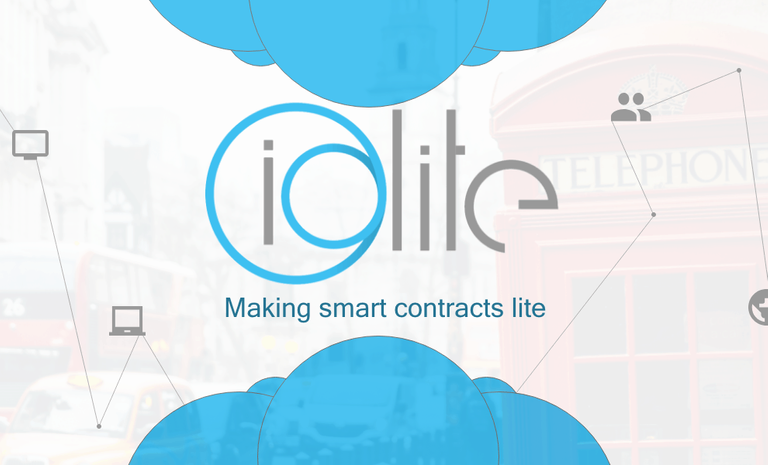
Smart contracts help you exchange money, property, shares, or anything of value in a transparent, conflict-free way while avoiding the services of a middleman.
The best way to describe smart contracts is to compare the technology to a vending machine. Ordinarily, you would go to a lawyer or a notary, pay them, and wait while you get the document. With smart contracts, you simply drop a bitcoin into the vending machine (i.e. ledger), and your escrow, driver’s license, or whatever drops into your account. More so, smart contracts not only define the rules and penalties around an agreement in the same way that a traditional contract does, but also automatically enforce those obligations.
Suppose you rent an apartment from me. You can do this through the blockchain by paying in cryptocurrency. You get a receipt which is held in our virtual contract; I give you the digital entry key which comes to you by a specified date. If the key doesn’t come on time, the blockchain releases a refund. If I send the key before the rental date, the function holds it releasing both the fee and key to you and me respectively when the date arrives. The system works on the If-Then premise and is witnessed by hundreds of people, so you can expect a faultless delivery. If I give you the key, I’m sure to be paid. If you send a certain amount in bitcoins, you receive the key. The document is automatically canceled after the time, and the code cannot be interfered by either of us without the other knowing since all participants are simultaneously alerted.
You can use smart contracts for all sort of situations that range from financial derivatives to insurance premiums, breach contracts, property law, credit enforcement, financial services, legal processes and crowdfunding agreements.
Sounds amazing, right?
Here is the problem. It is now limited to some blockchain languages like solidity to write a smart contract. So you should learn the language which will allow you to write smart-contract.
Open source world should not support this situation. Everybody should be able to write smart-contract to implement in some sort of situations, which will work as increasing the level of technology and usage areas of smart-contracts.
iOlite is providing a blockchain solution allowing anyone to use any language, programming or natural, to write smart-contracts.
What exactly is iOlite
A quote from iOlite whitepaper.
iOlite is a community-driven knowledge base for naturalized languages which allows an easier human-machine interfacing. In other words, iOlite is a blockchain solution that constantly learns how to communicate with machines, using any language used by the community, which can be a programming language or a natural language. For example, if you would like to write a smart contract with Ethereum Solidity, you can do so by using C or C++ (or any other language) through utilizing iOlite.
There are three major sectors that iOlite can greatly benefit:
- Mainstream programmers
- Mainstream businesses
iOlite offers an SDK pool for programmers in which they can use naturalized language for a machine -humane interface (Bots, smart contracts, IoT) while working in a familiar working environment with a known programming language. Furthermore, iOlite can be used with natural language to create a mainstream application such as bots, smart contracts, manage IoT interfaces.

In order to utilize the platform, users will need to install the IoLite plugin. The IoLite plugin will have a help file that will explain smart contract principle and it will be unique for all languages provided by IOlite. Users will also have the option to choose the IoLite system. Then the user will need to select the language which he/she wants to write a smart-contract with, and thereafter a smart contract can be designed and finalized.
It is important to point out that plugins released from the community will have a strong supervising model. Only users certified by foundation blocks can make contributions to official releases. The code itself would be open source and any group will be able to create its own domain of FAE (Machine Learning system that translates natural/coding language), however, the IoLite foundation will not support it or take any responsibility for it.
Features of iOlite
Blockchain
The use of the advanced Ethereum blockchain technology in the development of this project ensures a decentralized, open-source, and secured platform for coders to use for the creation of smart contracts.
IDE
This platform will make use of highly effective and popular IDEs such as Visual Studio and Eclipse via a plugin. The plugin is contracted by this platform through its Fast Adaptation Engine and Ethereum blockchain technology.
Fast Adoption Engine (FAE)
FAE is created by the core development team. It is used to adapt to any coding or programming language and then convert it to a smart contract within a few seconds.
Dependency-Based Action Language
Smart contracts will significantly reduce the time needed for completing simple business operations and the costs of doing business. Code bugs in smart contracts can result in irreparable damage and massive financial losses if not systematically analysed by coders.
iOlite aims to bridge the gap that separates the market and software developers responsible for developing a smart contract.
iOlite (ILT) Analysis
What is iOlite (ILT) all about?
It is an open-source, blockchain, and machine-learning platform built by using cutting-edge and state-of-the-art Ethereum blockchain technology. Users will be able to quickly write smart contracts on this platform by using any coding language, natural (English, Spanish, French, Russian, etc.) or programming. The natural codes will migrate it to the target machine’s programming language such as Solidity smart contracts in Ethereum blockchain technology.
Accessing this platform
Any programmer who has ever used an IDE (integrated development environment) will be able to naturally access this platform.
What does iOlite (ILT) aim to be?
The main goal of iOlite is to develop a unifying platform built on blockchain technology that allows users to create their own smart contracts. In addition, it will also fund developers and coders.
Users of this platform will be able to leverage the smart contract architecture through Fast Adaption Engine (FAE). They will be able to create smart contracts they need quickly and in a hassle-free manner.
Who will benefit from the iOlite platform?
Three major beneficiaries of this platform include:
Mainstream programmers.
Mainstream businesses.
What problem is iOlite (ILT) solving?
Smart contracts and blockchain technology have the ability to reduce the cost of business operations. The writing codes for the generation of smart contracts are complicated, complex, expensive, and potentially risky.
There are only a few programmers, developers, and coders who have the knowledge and experience to write codes for digital contracts, which limits the possibilities of assimilating smart contracts and blockchain technology into the main businesses around the world.
The largest issue that most coders tend to face is scalability when it comes to the growth and development of blockchain technology. When it comes to scaling to meet a large audience, researchers have shown that the use of blockchain technology is vulnerable. You can click to know more about How to invest in ICOs.
Solutions provided by iOlite
Ethereum blockchain technology is used in the development of this platform for accepting multiple native languages and different codes. Businesses will be able to make their own smart contracts with coding language with its FAE and IDE adaption.
This platform has a dependency-based action language, which will support the following:
- Staging code.
- Converting the previous coding language into smart contract schema.
- Unittest blocks.
- Core based code.
The open-source platform will decentralize the Solidity coding language itself and help coders to quickly convert their native language into Solidity. The use of smart contracts and Ethereum blockchain technology in businesses will increase due to this platform.
Positives
- Businesses will be able to use Python, C++ and other known programming languages in order to build Ethereum based smart-contracts. This tool will come in handy for many developers that are interested in smart-contract but don’t have the time nor motivation to learn a brand new programming language from scratch.
- iOlite can be used with natural language to create mainstream application such as bots, and manage IoT interfaces besides the smart-contracts creation.
- iOlite coins are used as a means for value-transfer inside the iOlite network. As an author of a smart contract you don’t need iOlite coins, however if you would like to use a smart contract that was created by another author in the network, you will have to pay that author fees. Personally, I believe this is the perfect way to utilise the platform’s native tokens. For an individual who is not Blockchain savvy, this token usage design can truly benefit to iOlite’s adoption.
Negatives
- Integration complications. For example how accurate is iOlite’s FAE system? Will it have issues with translating user’s code?
ICO Metrics
- Ticker: IOL
- Token type: OWN WALLET
- ICO Token Price: 1 IOL = 0.0221 USD
- Sold on pre-sale: 2,226,746 USD (UP TO 50% BONUS)
- Total Tokens: 1,000,000,000
- Available for Token Sale: 65%
- Сan't participate: CANADA, CHINA, HONG KONG, SINGAPORE, USA, VIETNAM
- Min/Max Personal Cap: 50 ETH / 500 ETH
- Accepts: ETH, BTC
Team

Advisors

Token Allocation Details

Roadmap

Important Links
- iOlite Website: https://iolite.io/
- iOlite Whitepaper: https://iolite.io/docs/iolite_witepaper_rev3.pdf
- iOlite Telegram: https://t.me/iolite
- iOlite Reddit: https://www.reddit.com/user/ioliteLabs/
- iOlite Bitcointalk ANN: https://bitcointalk.org/index.php?topic=2997516.0
- iOlite Medium: https://medium.com/@iolite
- iOlite Youtube: https://www.youtube.com/channel/UCI2TJyU2QMJQuyxKfnihTVg
- iOlite Twitter: https://twitter.com/iOliteLabs
- iOlite Bounty ANN: https://bitcointalk.org/index.php?topic=3742607.0